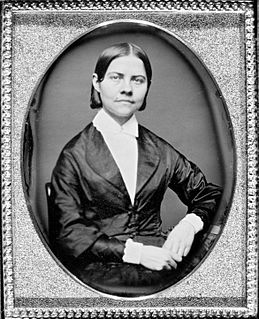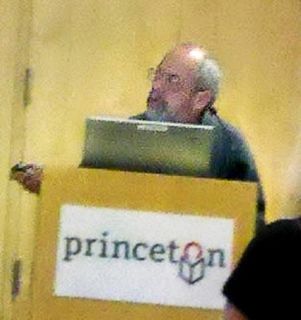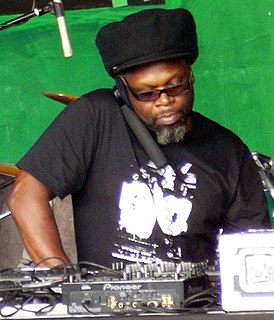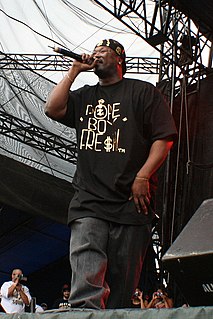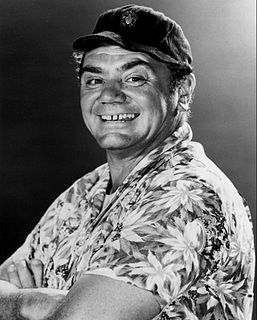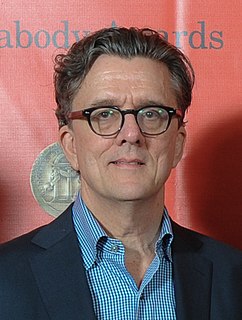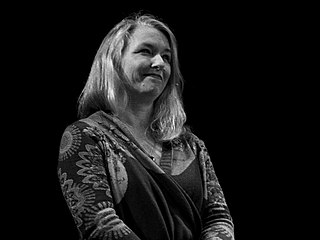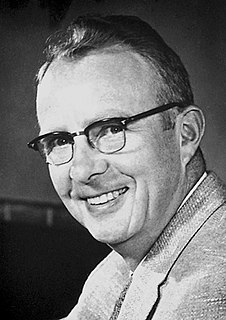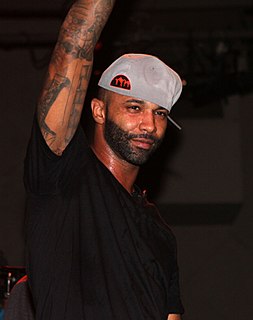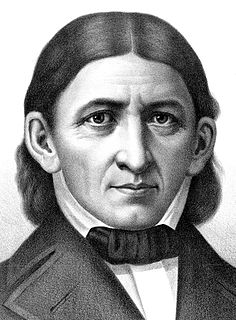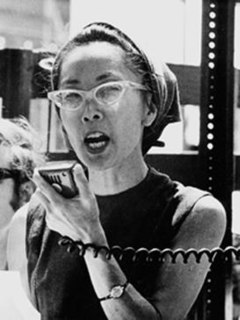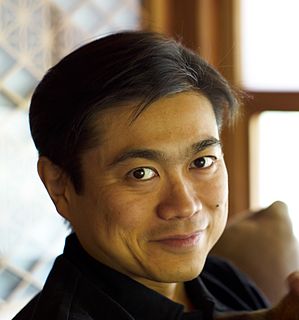Top 720 Peers Quotes & Sayings - Page 12
Explore popular Peers quotes.
Last updated on December 25, 2024.
I think there's a huge parallel that affects my musical taste, and connections that have to do with my ethnic diversity and my musical tastes and the diversity of that. And it's interesting that, growing up on the circuit, it posed such a challenge, not only to me deciding what my identity was amongst my peers, but then on the music side, it was like trying to explain or convince people especially in the music industry that there was a place for what I was trying to do. But at the same time, I think it has a lot to do with timing and even me, like, understanding it.
The adolescent does not develop her identity and individuality by moving outside her family. She is not triggered by some magic unconscious dynamic whereby she rejects her family in favour of her peers or of a larger society.... She continues to develop in relation to her parents. Her mother continues to have more influence over her than either her father or her friends.
There are some superficial things that connect me to the stream. There's instrumentation, there's timbre, use of electronics, the way that samples are used, the way the electric guitar is used. I'm thinking of things that are particular to this era. But I don't always feel particularly close to the music of my peers. I often feel that I have more in common with writers and visual artists. I try to connect to people in an emotional kind of way.
You may talk about Free Love, if you please, but we are to have the right to vote. Today we are fined, imprisoned, and hanged, without a jury trial by our peers. You shall not cheat us by getting us off to talk about something else. When we get the suffrage, then you may taunt us with anything you please, and we will then talk about it as long as you please.
The need of black conservatives to gain the respect of their white peers deeply shapes certain elements of their conservatism. In this regard, they simply want what most people want, to be judged by the quality of their skills, not by the color of their skin. But the black conservatives overlook the fact that affirmative action policies were political responses to the pervasive refusal of most white Americans to judge black Americans on that basis.
Psychologists usually offer three explanations for the failure of group brainstorming. The first is social loafing: in a group, some individuals tend to sit back and let others do the work. The second is production blocking: only one person can talk or produce an idea at once, while the other group members are forced to sit passively. And the third is evaluation apprehension, meaning the fear of looking stupid in front of one's peers.
If they learn easily, they are penalized for being bored when they have nothing to do; if they excel in some outstanding way, they are penalized as being conspicuously better than the peer group. The culture tries to make the child with a gift into a one-sided person, to penalize him at every turn, to cause him trouble in making friends and to create conditions conducive to the development of a neurosis. Neither teachers, the parents of other children, nor the child peers will tolerate a Wunderkind.
I always talk to all the crew. I always make it pleasant. I always nurture a relationship that makes people feel like they're important, like they're a part of the collaboration. I feel that way about the young actors on set. I don't talk to them like I'm the mentor; I talk to them like they're my peers. And I learned that from Meryl Streep.
Go to a playground: Little girls get called 'bossy' all the time, a word that's almost never used for boys. And that leads directly to the problems women face in the workforce. When a man does a good job, everyone says, 'That's great.' When a woman does that same thing, she'll get feedback that says things like, 'Your results are good, but your peers just don't like you as much' or 'maybe you were a little aggressive.'
Control is not leadership; management is not leadership; leadership is leadership is leadership. If you seek to lead, invest at least 50% of your time leading yourself-your own purpose, ethics, principles, motivation, conduct. Invest at least 20% leading those with authority over you and 15% leading your peers. If you don't understand that you work for your mislabeled 'subordinates,' then you know nothing of leadership. You know only tyranny.
A growing body of social science research reveals that atheists, and non-religious people in general, are far from the unsavory beings many assume them to be. On basic questions of morality and human decency - issues such as governmental use of torture, the death penalty, punitive hitting of children, racism, sexism, homophobia, anti-Semitism, environmental degradation or human rights - the irreligious tend to be more ethical than their religious peers, particularly compared with those who describe themselves as very religious.
Throughout my 20s I spent a lot of time just playing and not really working, but fortunately for me I continued to get just enough work, and have a reason to wake up in the morning. I really empathize with some of my peers who had success in the early years then it dries up, and so there's no reason to get up in the morning.
I had invited 50 or 60 peers and friends, most of whom were parents, to see the film [Trust], and I asked about the last scene. It was interesting because it was split right down the middle, 50/50. About half the audience wanted it to end with the very emotional scene between Clive and Liana, and that feeling of realization and catharsis. And, the other half were adamant about keeping that last scene.
My falling in love with spoken word poetry definitely came out of that time period where all the adults around me were failing to supply me with any answers. Everyone was too busy dealing with things that were more important. I was pretty lost and invisible. And all of a sudden, this world opened up where I could get on stage and perform in front of my peers. People would listen to me and see me, and people would say, "That thing you created was important." And that was so validating and necessary at that specific moment.
There's nothing like getting feedback that's positive and supportive. That's what I'm all about. I'm really just genuinely doing good music. I'm not looking to be on the cover of magazines and I'm not in it for the fame. I'm not in it for selling or the biggest Pop song in the world. I have to go for critically acclaimed. I'd rather go for my peers that I look up to say "I listen to her record." I'd rather do a small little touring venue that has two people who support me as opposed to thousands of people. I mean if it happens, it happens but I'm doing it for me.
I find that so many of my peers of my age don't listen to anything new. But I love the new. I love the energy of the new, the energy of the new act. The young are so important. The young give you the energy, and if you don't notice the young, and you don't give them credit and you don't listen to all sorts of music, then you're missing out on something.
There are houses in certain provincial towns whose aspect inspires melancholy, akin to that called forth by sombre cloisters, dreary moorlands, or the desolation of ruins. Within these houses there is, perhaps, the silence of the cloister, the barrenness of moors, the skeleton of ruins; life and movement are so stagnant there that a stranger might think them uninhabited, were it not that he encounters suddenly the pale, cold glance of a motionless person, whose half-monastic face peers beyond the window-casing at the sound of an unaccustomed step.
I just think giving back is in tandem with the way in which I was raised, with the, 'It takes a village to raise a child' mentality. Sometimes with the knowledge you have, you just don't know how powerful it is. I think I'm in a reasonably interesting position to recognise that. Plus we're now living in a completely different time to the one in which I grew up in. Because of my peers as well, it's the whole reason I'm doing what I'm doing. In terms of putting things back into the community, it's almost like running my sound system again.
How much can we ever know about the love and pain in another's heart? How much can we hope to understand those who have suffered deeper anguish, greater deprivation, and more crushing disappointments than we ourselves have known? Even if the world's rich and powerful were to put themselves in the shoes of the rest, how much would they really understand the wretched millions suffering around them? So it is when Orhan the novelist peers into the dark corners of his poet friend's difficult and painful life: How much can he really see?
Don't seek approval. This may be the toughest suggestion for you to follow -- and the most important. Whether you'te a teenager seeking approval from your peers, a middle-aged parent seeking the approval of your kids, or a man or woman seeking the approval of a partner, it all amounts to the same thing. You're giving your personal power away every time you seek validation from someone else for who you are.
Some believe that to be authentic, you have to present yourself the same way in every situation. At first thought, this notion seems reasonable, but when you really think about it - not so much. The way you interact with your boss is not the same way you need to interact with your family, peers, team members, or clients. It is not only okay to present yourself differently in various situations but crucial to being perceived as authentic.
It was a good script [Something New]. We have not seen an interracial issue dealt with from a black woman and white man's perspective in this way. And, usually, it's a black man, white woman. I loved the fact that it wasn't about the couple being against the world or the couple against the family. I loved the fact that it was her dealing with her own prejudices that came up, her own guilt, her own shame and embarrassment about what her peers thought.
Your life experience will never far exceed the expectations of your peers, because to stay connected to them there is an unconscious contract that says we're going to be within this range of each other. Now, on the other hand, if for some reason your friends have a higher expectation for life than you do, just to stay on the team you've got to raise your standard.
Soon as the thund-ah enters my lungs-ah I start gettin hungry wheres that balogna Crackers and cheese zuzus and whams Icy white honey bun ooohh there I am Go an light another one constantly smokin' Turn up a 45 drankin and chokin Start smokin weed real young with my peers So full of dope smoke comin out my ears
I am very proud of having won Oscar because I know what I put into it. I know that the people who voted for me voted because they thought I was the best at that time. It's a wonderful thing to look up there and see that you achieved something that your peers gave to you and appreciation for your work. That's most of all what I think about when I see the Oscar.
I'm comparing Americans to international peers in terms of GDP, educational system - the sort of benchmarks we used to designate a so-called developed society. In that sense, we are outliers. Are we suckers? Yes, but it's not just that. That puts too fine a point on what I am saying. We're not idiots and victims. It's about us as a people, compared with, say, Canadians, believing whatever we believe because, well, we're Americans, we feel this way without regard for what scholars and scientists say.
You are already leaders. Your ideas, your actions and your decisions make a difference. More than any other generation, you have a voice. Social networking is changing how we interact - and it can change our world. You are in touch with peers from around the world. You understand the power of instant communication. I appeal to you to use that power for the common good, the power of communication and the power of networking.
I didn't abandon my studies. Because I was, through no - clarify this. Through no particular genius of my own, I was the first person from Libertyville Public High School to attend Harvard, not because I was smarter than anyone or better than anyone, but no one had ever applied before. It was like University of Illinois, a fine institution, was the sort of the upper echelon of places where kids went from that school. And so I felt sort of a duty to myself and my peers to continue with those studies, and to continue to, intellectually arm myself for my coming struggles.
Daily the Negro is coming more and more to look upon law and justice, not as protecting safeguards, but as sources of humiliation and oppression. The laws are made by men who have little interest in him; they are executed by men who have absolutely no motive for treating the black people with courtesy or consideration; and, finally, the accused law-breaker is tried, not by his peers, but too often by men who would rather punish ten innocent Negroes than let one guilty one escape.
There are so many reasons to support girls' education. It's one of the single biggest protective factors. When a girl is in school, she has other people who will notice how she's being treated at home. She has other resources in people she can trust. She is part of a community of peers: When girls have friends and bond with one another, they can encourage one another to fight for their rights and learn more, particularly if some families aren't as educated.
I am a drifter, and as lonely as that can be, it is also remarkably freeing. I will never define myself in terms of anyone else. I will never feel the pressure of peers or the burden of parental expectation. I can view everyone as pieces of a whole, and focus on the whole, not the pieces. I have learned to observe, far better than most people observe. I am not blinded by the past or motivated by the future. I focus on the present because that is where I am destined to live.
That in all capital or criminal prosecutions a man bath a right to demand the cause and nature of his accusation, to be confronted with the accusers and witnesses, to call for evidence in his favor, and to a speedy trial by an impartial jury of twelve men of his vicinage, without whose unanimous consent he cannot be found guilty; nor can he be compelled to give evidence against himself; that no man be deprived of his liberty, except by the law of the land or the judgment of his peers.
Beginning with Santa Claus as a cognitive exercise, a child is encouraged to share the same idea of reality as his peers. Even if that reality is patently invented and ludicrous, belief is encouraged with gifts that support and promote the common cultural lies. The greatest consensus in modern society is our traffic systems. The way a flood of strangers can interact, sharing a path, almost all of them traveling without incident. It only takes one dissenting driver to create anarchy.
There's a small movement of teacher-led schools across the country. These are schools that don't have a traditional principal, teachers come together and actually run the school themselves. That's kind of the most radical way, but I think something that's more doable across the board is just creating career ladders for teachers that allow certain teachers after a certain number of years to inhabit new roles. Roles mentoring their peers, helping train novice teachers to be better at their jobs, roles writing the curriculum, leading on lesson planning.
At the risk, then, of being shunned by some of my gloomier peers, I venture to tell you that writers work like demons, suffer greatly, and are also happy, in unmistakable ways, some of the time. If we had no knowledge of happiness, our novels wouldn't sufficiently resemble real life. Some of us are even made a little bit happy, on occasion, by the writing process itself. I mean, really, if there wasn't some sort of enjoyment to be derived, would any of us keep doing it?
Most of us who become experimental physicists do so for two reasons; we love the tools of physics because to us they have intrinsic beauty, and we dream of finding new secrets of nature as important and as exciting as those uncovered by our scientific heroes. But we walk a narrow path with pitfalls on either side. If we spend all our time developing equipment, we risk the appellation of "plumber," and if we merely use the tools developed by others, we risk the censure of our peers for being parasitic.
Walking along past the store windows, into which she peers with her usual eagerness, her usual sense that maybe, today, she will discover behind them something that will truly be worth seeing, she feels as if her feet are not on cement at all but on ice. The blade of the skate floats, she knows, on a thin film of water, which it melts by pressure and which freezes behind it. This is the freedom of the present tense, this sliding edge.
Some of my peers are artists who are at the same level as I am and have been getting paid more than I have, so there's even a pay gap. It's disgusting. But as soon as you get one person speaking out about it then you'll get other people coming out of the cracks saying, "Actually, me too." I'm starting to see and feel a bit of change in the industry now. It's long, long overdue, but it's a beautiful thing to see and it's just going to get better as the days go by.
We as young men need just one of our peers to stand up and trust his God completely and without reserve. We need just one who will start climbing the rugged mountain cliffs in the direction of his King. We need just one to hear the call of the wild, to charge the fields of Bannockburn and fight for something that really matters. I appeal to you, as a young man, to consider that throughout history, it has often been when one young man stood up to be counted that the course of a nation was forever altered.
When I was a child, for a public/civil servant to be caught in corrupt practices, that individual will be a pariah. He will be a complete reject of the society; he/she could not raise his or her voice to speak in the public. So what happened between that time and now? That time when a public officer, prison or customs officer caught in corruption hides his face in shame amongst his peers, he just couldn't come out publicly. Today, when they come back, they get chieftaincy titles, they are received in grand style, cows are killed, they ride on white horses.
At best, the relationship between drama critic and playwright is a pretty twiggy affair. When I'm asked whom I write for, after the obligatory, I write only for myself, I realize that I have an imaginary circle of peers - writers and respected or savvy theatre folk, some dramatic writers and some not, some living, some long gone. . . . Often a writer is aware as he works that a certain critic is going to hate this one. . . . You don't let what a critic might say worry you or alter your work; it might even add a spark to the gleeful process of creation.
No one goes on a direct path, even though it sometimes feels like your peers might be racing ahead. Everyone's trying to figure it out. But if you just put yourself out there, step out of your comfort zone, establish yourself in terms of skills, mentorship, but leave space for your passions, then you're going to turn out pretty well.
You know, "Moonlight" deserves best picture [on Oscar]. What I mean by tarnished is the moment - being able to be in front of all your peers and being able to thank everyone involved and particularly when it's a movie that has some pivotal social relevance, like "Moonlight," particularly in a time where, with this new transitional government, LGBT rights are just being stripped. This win means something.
Success to me is self-determined, the life I live today, to come from a kid strung out on angel dust, homeless, at some points sleeping in the street. No money, not knowing where the next meal was coming from. No sex, no relationships, people that didn't love me, didn't care about me, to where I am today... that's successful. When I signed my record deal I always wanted to be respected by my peers for my ability and my skill level.
Play is the highest expression of human development in childhood for it alone is the free expression of what is in a childs soul.”• “Play is the highest level of child development . . . It gives . . . joy, freedom, contentment, inner and outer rest, peace with the world . . . The plays of childhood are the germinal leaves of all later life.”• “Children are like tiny flowers; they are varied and need care, but each is beautiful alone and glorious when seen in the community of peers.
First and foremost, you do not have to live up to or emulate the lives of any of your predecessors. But at the very least, you should know about them. You will have your own life, interests, and ideas of what you want or do not want in life. Do what you enjoy doing. Be honest with yourself and others. Don't think of satisfying anyone: your elders, peers, government, religion, or children who will come after you. Develop meaningful ideals, and become conscious of others, their existence, and their lives.
I am encouraged as I look at some of those who have listened to their "different drum": Einstein was hopeless at school math and commented wryly on his inadequacy in human relations. Winston Churchill was an abysmal failure in his early school years. Byron, that revolutionary student, had to compensate for a club foot; Demosthenes for a stutter; and Homer was blind. Socrates couldn't manage his wife, and infuriated his countrymen. And what about Jesus, if we need an ultimate example of failure with one's peers? Or an ultimate example of love?
My hapless peers with their lofty dreams--how I envy and despise them! I'm with the others, the even more hapless, who have no-one but themselves to whom they can tell their dreams and show what would be verses if they wrote them. I'm with those poor slobs who have no books to show, who have no literature beside their own soul, and who are suffocating to death due to the fact that they exist without having taken that mysterious, transcendental exam that makes one eligible to live.
Music is the highest art form.I still think that. I wish I was really talented in music because then I would be doing it. I felt that I could write a decent song, but it was a big struggle. It took a lot of time and effort for me, whereas a lot of my peers and other people seemed to have a much easier relationship to it. But I profoundly love music, and I still dream that I might one day try to write some new songs and record something - just for myself, to see what would happen.
I always tell people, "There's a book on everyone." I get some of that book before I do anything. If I want to deeply understand someone's reputation, I'll talk to their friends, their former bosses, their peers, and I'll learn a lot about them. I want them to be trusted. I want them to be respected. I want them to give a s - -. Then there are the intangibles: physical and emotional stamina, the ability to confront issues. I can ask all I want about those things, but I also have to see a lot of it.
Having observed his market calls real time over the years, I can say that Jason Perl's application of the DeMark Indicators distinguishes his work from industry peers when it comes to market timing. This book demonstrates how traders can benefit from his insight, using the studies to identify the exhaustion of established trends or the onset of new ones. Whether you're fundamentally or technically inclined, Perl's DeMark Indicators is an invaluable trading resource.
Zip codes might be great for sorting mail, but they should not determine the quality of a child s education or success in the future workforce," said Bob Wise, president of the Alliance for Excellent Education and former governor of West Virginia. "With common standards and assessments, students, parents, and teachers will have a clear, consistent understanding of the skills necessary for students to succeed after high school and compete with peers across the state line and across the ocean.
Studying in countries like China isn't only about your prospects in the global marketplace. It's not just about whether you can compete with your peers in other countries to make America stronger. It's also about whether you can come together and work together with them to make our world stronger. It's about the friendships you make, the bonds of trust you establish and the image of America that you project to the rest of the world.
I believe everything is autobiographical. If it's not strictly about you, it's your peers, your obsessions, things that make you angry, or things that you've been watching or obsessing about. Preoccupying you for reasons you don't necessarily know, but it's about you. It says a lot about you. It's like when someone tells you their dream and you sit there going, "Do you realize how much you're revealing about yourself right now?" It's kind of embarrassing.
I was 17 when it was being filmed and so I was at an age where you are learning a lot about yourself. I came out of school to film it, and I hadn't been having a good time in school before that. I get quite shy around big groups of people. If I meet people, especially my peers and people my own age, I always struggle because I've always worked with adults and they have a tendency to molly coddle you a bit when you're the youngest on-set.
Oh maturity's a wrapped up package deal so it seems
And ditching teenage fantasy means ditching all your dreams
All your friends and peers and family solemnly tell you you will
Have to grow up be an adult yeah be bored and unfulfilled
Oh when no ones yet explained to me exactly what's so great
About slaving 50 years away on something that you hate, about meekly shuffling down the path of mediocrity
Well if that's your road then take it but it's not the road for me.
Consequently, the only thing I learned in school was typing. In the old days, people like me who don't have college degrees had a hard time thriving in society. But today, the ability to learn on your own or from your peers has become really easy. I think this change is leading to a fundamental disruption in education. Independent and lifelong learning are really starting to peak - there is an inflection point coming around how people learn.
We have different expectations for different groups of people. We tend to modulate the degree with which we're forgiving or punitive depending on how well we know folks, or how much we consider them peers, or how much social capital we've invested in them. That has to do with race, class, gender, and socioeconomic status. We have a tendency to bend over backwards to forgive folks we think of as part of "the us." The question of who we define as "the us" is a lot of what constitutes how we punish who we punish.



